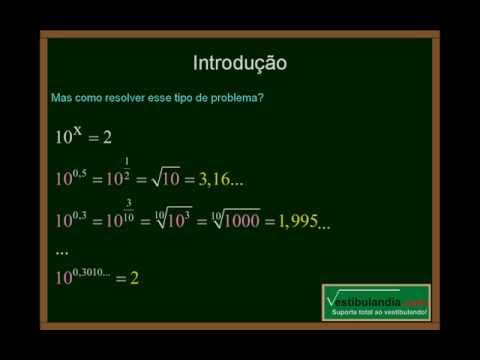PROVERB AND RIDDLE (PROVERB PART) - KELAS 10 BAHASA DAN SASTRA INGGRIS LINTAS MINAT
Summary
TLDRIn this educational video, the host introduces the concept of proverbs in English, explaining their definition, purpose, and types. Proverbs are described as wise sayings offering advice on how to live life, often using figurative language. The video covers three main types: warnings, advice, and moral messages. It provides examples of well-known proverbs and breaks down their meanings. Viewers are encouraged to think critically about the figurative meanings behind proverbs and understand their implications for real-life situations. The host also discusses the grammatical structures of proverbs and shares examples from various cultures.
Takeaways
- 😀 Proverbs are short, wise sayings that offer advice on how to live life.
- 😀 Proverbs often carry figurative language, meaning their meanings are not to be taken literally.
- 😀 In Bahasa Indonesia, proverbs are called *peribahasa*, and they convey advice, warnings, or moral lessons.
- 😀 There are three main types of proverbs: warning, advisory, and moral proverbs.
- 😀 Warning proverbs, like 'Don’t count your chickens before they hatch,' caution us about overestimating outcomes.
- 😀 Advisory proverbs, such as 'Never judge a book by its cover,' encourage us to avoid judging based on appearances.
- 😀 Moral proverbs, like 'Look before you leap,' guide us to consider the consequences before acting.
- 😀 Proverbs use different grammatical structures, including inverted, declarative, and parallel sentence forms.
- 😀 'The early bird catches the worm' advises us to act early and seize opportunities for success.
- 😀 Proverbs like 'Two wrongs don’t make a right' remind us that responding to bad actions with more bad actions doesn't help solve the issue.
Q & A
What is the main focus of the video?
-The main focus of the video is to explain proverbs, their uses, meanings, and how to understand them in the English language.
What is a proverb?
-A proverb is a collection of wise sayings that offer advice on how to live one's life. They often contain figurative language and provide insights through indirect expressions.
What are the three main types of proverbs mentioned in the video?
-The three main types of proverbs are: 1) Proverbs as warnings, 2) Proverbs as advice, 3) Proverbs with moral messages.
What does the proverb 'Don't count your chickens before they hatch' mean?
-This proverb serves as a warning to avoid being overly optimistic or making plans based on assumptions before the outcome is certain.
What does 'Never judge a book by its cover' advise?
-'Never judge a book by its cover' advises people not to judge others solely based on their appearances, but to consider their character and actions.
How does the proverb 'Look before you leap' relate to decision-making?
-This proverb advises people to carefully consider the consequences and risks before making any significant decisions or taking action.
What is the significance of figurative language in proverbs?
-Figurative language in proverbs, such as connotations and metaphors, requires individuals to analyze the deeper meaning behind the words, as the literal interpretation may not always convey the true message.
What does the proverb 'Don't whip a dead horse' mean?
-This proverb is a warning against continuing to do something that is futile or pointless, like trying to revive a situation that is already beyond help.
How is the proverb 'Garbage in, garbage out' an example of parallel structure?
-The proverb 'Garbage in, garbage out' uses parallel structure by combining two similar phrases ('garbage in' and 'garbage out') to convey that poor input leads to poor results.
What does the proverb 'Birds of a feather flock together' suggest about people?
-'Birds of a feather flock together' suggests that people with similar interests, backgrounds, or traits tend to form groups or communities with others who share those similarities.
What does the Chinese proverb 'The person who moves a mountain begins by carrying away small stones' imply?
-This proverb implies that achieving big goals requires starting with small, manageable tasks. Success comes from consistent, incremental effort over time.
What is the moral of the proverb 'Two wrongs don't make a right'?
-'Two wrongs don't make a right' teaches that responding to a bad situation with more wrongdoing, such as seeking revenge, will not solve the problem or improve things.
What does 'There's no such thing as a free lunch' mean?
-This proverb warns that nothing is truly free. Even if something seems to come at no cost, there is usually an underlying price or hidden cost associated with it.
Outlines

このセクションは有料ユーザー限定です。 アクセスするには、アップグレードをお願いします。
今すぐアップグレードMindmap

このセクションは有料ユーザー限定です。 アクセスするには、アップグレードをお願いします。
今すぐアップグレードKeywords

このセクションは有料ユーザー限定です。 アクセスするには、アップグレードをお願いします。
今すぐアップグレードHighlights

このセクションは有料ユーザー限定です。 アクセスするには、アップグレードをお願いします。
今すぐアップグレードTranscripts

このセクションは有料ユーザー限定です。 アクセスするには、アップグレードをお願いします。
今すぐアップグレード関連動画をさらに表示

NOUN (Kata Benda) Bahasa Inggris | Pengertian, Jenis, dan Fungsi Noun

TEKS PROSEDUR BAHASA INDONESIA KELAS 7 SMP KURIKULUM MERDEKA

MATERI PUISI LENGKAP KELAS 10 |BAHASA INDONESIA|

Teks Iklan, Slogan dan Poster (Pengertian, ciri dan jenisnya) - Lengkap dengan tugas

Matemática - Aula 13 - Logaritmo - Parte 1

PARIBASA BALI/BASITA PARIBASA/PRIBAHASA BALI
5.0 / 5 (0 votes)
